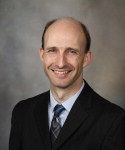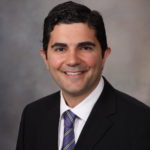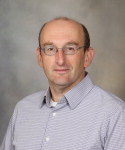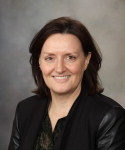Seven Mayo Clinic investigators receive 2018 Regenerative Medicine Minnesota awards
Seven Mayo Clinic investigators have received 2018 Regenerative Medicine Minnesota research grants. The two-year grants are awarded to investigators in the areas of discovery science, translational research and clinical trials.

Terence Burns, M.D., Ph.D., Department of Neurologic Surgery, assistant professor of neuroscience and neurosurgery
Terence Burns, M.D., Ph.D. (NS ’17), is developing strategies to optimize neurological function and quality of life for patients with brain tumors, neurological injuries and neurodegenerative diseases. He is leading efforts to understand and overcome the challenges of clinical translation for neurodegenerative therapies. His research grant proposes to study the safety and mechanisms of senolytic therapy for central nervous system rejuvenation.

Mohamad Bydon, M.D., Department of Neurologic Surgery, associate professor of health services research, neurosurgery and orthopedics
Mohamad Bydon, M.D. (NS ’16), specializes in minimally invasive spine surgery and spine oncology and serves as principal investigator of the Mayo Clinic Neuro-Informatics Laboratory. The lab established a clinical trial with colleagues in neurology, physical medicine and rehabilitation, transfusion medicine and other specialties. The goal of the trial is to investigate whether adipose-derivePid mesenchymal stem cells can be safely administered into the cerebrospinal fluid of patients with traumatic spinal cord injury and to study the impact of the cells on functional improvement, activities of daily living and quality of life.

Ping Chen, Ph.D., Department of Molecular Pharmacology and Experimental Therapeutics, assistant professor of pharmacology
The major challenge in treating obesity is not just losing weight but also preventing weight from returning. Ping Chen, Ph.D. (MPET ’15)‘s proposal examines a new treatment strategy that uses a gene transfer therapy to safely target brain mechanisms that control hunger and energy output.
Aaron Krych, M.D. (MED ’05, OR ’10), proposes to test the initial safety and feasibility of RECLAIM, a single-stage cartilage repair technique that uses the patient’s own cartilage cells and allogeneic mesenchymal stem cells. The study will assess improvement in the patient’s pain and function following the procedure, while actively monitoring safety and adverse events.

Joseph Lillegard, M.D., Ph.D., supplemental consultant, Mayo Clinic; pediatric general and thoracic surgeon, Children’s Minnesota
Joseph Lillegard, M.D., Ph.D. (CS ’10, S ’13), is researching gene therapy to fight inborn errors of metabolism of the liver, primarily hereditary tyrosinemia type 1 (HT1), a metabolic disorder caused by an enzyme deficiency. With the award, he is investigating the safety and efficacy of direct therapeutic lentiviral vector administration to large animal models of disease.

Alexander Revkin, Ph.D., Division of Physiology and Biomedical Engineering, professor of biomedical engineering
The goal of Alexander Revzin, Ph.D. (PHYS ’16)‘s project is to develop microcapsules that could be used as cell carriers during differentiation of stem cells into pancreatic islets. These capsules also may be useful as vehicles for islet transplantation. This technology will enable better scale-up of islet production from stem cells, may result in cost reduction and may alleviate problems associated with immune rejection of transplanted islets.

Jennifer Westendorf, Ph.D., Department of Orthopedic Surgery, Department of Biochemistry and Molecular Biology, Margaret Amini Professor of Orthopedic Regenerative Medicine Research, professor of biochemistry and molecular biology and orthopedics
Jennifer Westendorf‘, Ph.D. (IMM ’96)‘s research project will determine how Girk2/3 potassium channels contribute to cartilage formation and repair in the setting of osteoarthritis.
